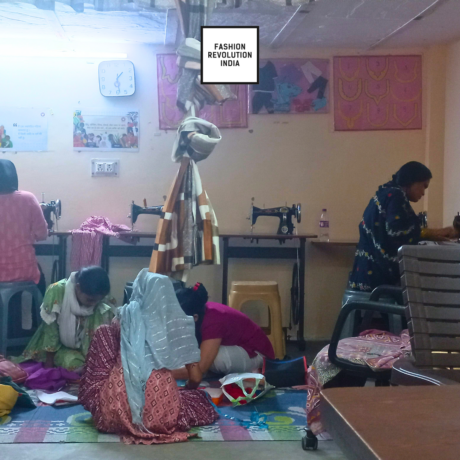Fashion Revolution welcomes the Next Generation EU recovery plan with a quarter of funding tied to taking action on the climate crisis
The fashion and textiles industry has been hard-hit by the global COVID-19 pandemic and economic downturn, with farmers and workers in fashion supply chains suffering the worst impacts of reduced consumer demand for clothing, cancelled orders and delayed payments by major brands and retailers worth billions of euros, and the lack of social safety nets in many countries where textiles and clothing is produced. As one of the world’s largest buyers and a significant producer of textiles and clothing, the EU must take action, through both financial support and regulatory reform, to ensure more robust, resilient and transparent supply chains result from its COVID-19 recovery efforts.
With this in mind, Fashion Revolution welcomes the European Commission’s Next Generation EU recovery plan with a quarter of funding tied to objectives set out in the European Green Deal and the new Circular Economy Action Plan, which focuses on textiles as one of its seven priority value chains.
We were pleased to see that the European Commission’s new Circular Economy Action Plan incorporates many of the recommendations set out in the Civil Society Shadow European Strategy for Sustainable Textiles, Garments, Leather and Footwear (TGLF) published in April 2020 by a group of 70 diverse civil society organisations, including Fashion Revolution, Fair Trade Advocacy Office, European Environmental Bureau and Clean Clothes Campaign, among others.
Building on the proposal for a recovery plan put forward by the European Commission, Fashion Revolution calls on the European Commission, MEPs and Member States to adopt the recommendations set out in the civil society vision for a comprehensive EU Textile Strategy when detailing and implementing Next Generation EU.
The civil society EU Textile Strategy contains recommendations to promote a TGLF industry that respects human rights, creates decent jobs and adheres to high social and environmental standards throughout its value chain. The strategy has gained the support of 53 Members of the European Parliament from across the political spectrum, and we are calling on European Commission, MEPs, and EU governments to back this ambitious strategy and kick-start a global re-design of the global textile value chain.
In order to build a strong, resilient and sustainable economy and society in Europe after COVID-19, we strongly believe that robust legislative initiatives on human rights and environmental due diligence, ending unfair trading practices, sustainable product policy, extended producer responsibility and transparency requirements, as part of the European Green Deal, will make a significant difference.
As part of the Next Generation EU recovery plan and European Green Deal, we particularly welcome the establishment of the Just Transition Mechanism, which will provide €150 billion to “incentivise European industrial leadership in strategic sectors and key value chains, including those crucial to the twin green and digital transitions,” and we encourage the European Commission to prioritise the textile value chain as part of this mechanism.
Beyond the Next Generation EU, we also join Traidcraft Exchange in calling upon the EU to provide urgent financial and technical assistance to textile and garment producing countries that export to Europe which have been adversely impacted by the collapsing demand for clothing by European consumers and the cancellation and delayed payment of orders by major European brands and retailers. This could be through temporary loan payment suspensions, restructuring and relieving debt, aid packages aimed at supporting workers in the supply chain who have lost jobs and income, among other measures.








